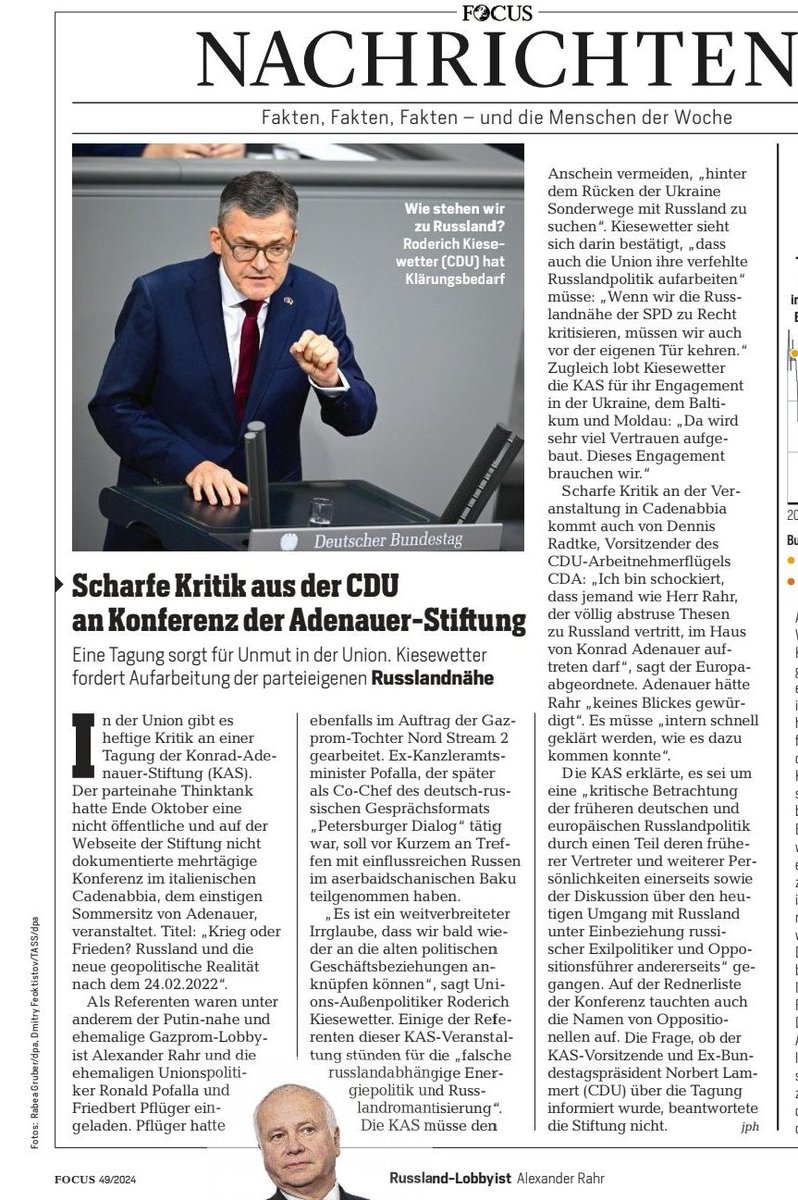Coming to terms with the past 🧵 Too many German politicians and managers acted irresponsibly and treasonously until 2022, like Russian collaborators against Germany and Europe. You can't just blame it on symbolic figures like former chancellors. And here we go again: 1/15
German foreign policy towards Russia and Ukraine was based until 2022 on a mass of Kremlin lies, such as -Green men in Crimea -“Separatists” in Donbas without Russian participation -NordStream a purely economic project The facts were known, but they still played along: 2/15
In 2020, Sullivan confirmed the firm conclusion of Western intelligence agencies in 2014 that regular Russian troops carried out the annexation of Crimea and Donbas. Nevertheless, France and Germany forced Ukraine to comply with the absurd Minsk Agreement, using the fiction of "separatists." 3/15
Merkel and Steinmeier thus turned themselves into puppets and dancing dolls of Russian propaganda. The lie that Nord Stream was a "purely economic" project was also perpetuated for too long, even though even RU Bank economists had proven its uneconomical nature. 4/15
Why should Germany become "intertwined" with Russia? A country with which we had only 2% of our foreign trade. A country that had long acted with imperial intent and brutal violence against former "vassals," and was rife with crime and corruption at home. 5/16
All of this was already evident in Georgia in 1999 and at the latest in 2008. And the trade we conducted with Russia didn't lead to change there; it had the opposite effect: Russian corruption spread to Germany. Many profited through small positions and structures. 6/15
The fact that no one can prove she took personal monetary advantage cannot serve as an excuse for Merkel. She protected the corruption of other actors—which she, in turn, needed to secure her power. This, too, was a—presumably indirect—form of corruption. 7/15
The most shameful aspect of Germany's misguided policy: Putin's lies not only served to gain advantage, but also to undermine our values. His disinformation aimed to undermine our democracy. Collaborating with him was a betrayal of our country. 8/15
The consequence: The Merkel era has produced a defenseless Germany on all levels – militarily – in fending off hybrid attacks, from sabotage to disinformation – psychologically: Our society is not resilient. The traffic light coalition only closed gaps in some areas. 9/15
The fact that the actors who caused this damage still have influence hasn't exactly helped the process of coming to terms with the past. Yet that's precisely why clarifying these connections and networks is so important in order to prevent such negative processes. 10/15
It was shocking, for example, that all democratic parties spoke out against a commission of inquiry to investigate the Russia connections. Even the Greens, out of misplaced consideration for their coalition partner, the SPD. We won't get anywhere like this. 11/15
What's needed is a coalition of willing people from all democratic parties who, across party lines, tackle this social reckoning without taboos. Not a court of shambles—better a process that explains and clarifies. Thanks, @rkiesewetter, for vehemently demanding this. 12/15
After all, how can we shape Germany's future without this clarity? Without an understanding of the vulnerability to manipulation and corruption, these mechanisms will continue to be used against Germany by adversaries such as the Chinese regime. 13/15
Suggestion: We should demand a clear statement from all parties during the election campaign on this issue: "How do you feel about addressing the Russia connection? What concrete steps will you take once the new Bundestag is constituted?" 14/15
A West German lie was to believe we had come to terms with the Nazi era. But we haven't—nor have we dealt with the GDR dictatorship and the corruption of the fall of communism. Let's be honest about our history. Only then can we learn for the future. 15/15

